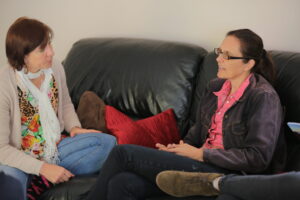Don’t tell, Show
Don’t tell, Show
When an elderly asian woman asked me for directions in Miranda Fair to the train station, it took me by surprise. She was loaded with parcels, a heavy accent, and confusion, and I had no confidence in my ability at giving her instructions. We were deep in the shopping jungle and there were many turns to navigate our way clear. The best thing I could do was show her where to go, so off we trotted, with her husband about 10 paces behind us.
There’s a saying when writing, ‘Don’t tell, show’ which gives a richer experience for the reader. I could say, “Bob is boring” which is ‘telling’, and doesn’t allow readers to make their own assessment, it’s also nondescript and rather bland writing.
On the other hand, I could ‘show’; “Bob droned on about the myriad of fly swatters available to the outback campers, only finishing when the last of his audience slunked away”, the reader makes their own judgement call as the writer has ‘shown’ what Bob is like: boring. ‘Showing’ is also more engaging for the reader.
This principle, ‘Don’t tell, show’ doesn’t just apply to writing, it applies to life.
When a radio station promotes themself with quotes like, “Sydney’s Hit Station…” “We are the best…” I get a tiny bit over it.
Ok, a lot over it!
Just show me, stop talking about how good or how exciting you are, and put that music on, stop your words and crank those hits up- let me decide for myself. I have a brain and I’m not afraid to use it. Let me be the judge.
‘Telling’ is easier than ‘Showing’
If we promote ourselves with emotive words, it may work in the short term, but gives no lasting impact if there is no substance behind it. Not only that, but if we don’t back it up with results, people are reluctant to trust our words again. It’s like eating gummy bears, we may get that initial sugar rush, but it’s not long lasting nutrition.
I’ve been to places that tell me I am welcome, but don’t offer a cup of tea when they are making one for themselves. I’ve been to banks where they tell me I’ll be treated fairly, but leave me hanging for 20 minutes in my cow print pyjamas. I’ve been told I am valued, but felt the intimidating horns of the bully. The ‘showing’ is a deeper, experienced communication, much more effective than ‘telling’.
If ‘Don’t tell, show’ applies to life in general it can also be effective in our communication about God. When Bethany Hamilton suffered a shark attack while surfing, her left arm being bitten off, and 3 weeks later returning to the water, she SHOWED the strength of God in her. She didn’t just tell of His faithfulness, she showed it by her actions. She also went on to win numerous competitions, showing her trust in God.
Back in the day, a guy called Paul was tormented by Satan, and he asked God three times to take it away, but God said, “My grace is all you need. My power works best in weakness.” Paul, like Bethany, realised that when he was humanly weak, God was strong in him.
When people have been told about God, it could be construed as trite and superficial if it’s not backed up by action. Let’s give them the credit of also having a brain, and allowing them to be the judge of how good, faithful and true God is! Let our lives tell His story. Remembering that it’s in our weaknesses, our persecution, our hardships, our suffering, that God can shine the brightest.







